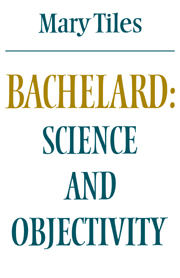Book contents
- Frontmatter
- Contents
- Editor's Introduction
- Preface (and Postscript)
- Acknowledgments
- Abbreviations
- 1 Philosophy of science: the project
- 2 Non-Cartesian epistemology and scientific objectivity
- 3 Non-Euclidean mathematics and the rationality of science
- 4 Non-Baconian science and conceptual change
- 5 The epistemology of revolutions – between realism and instrumentalism
- References
- Appendix: Biographical note
- Index
- Frontmatter
- Contents
- Editor's Introduction
- Preface (and Postscript)
- Acknowledgments
- Abbreviations
- 1 Philosophy of science: the project
- 2 Non-Cartesian epistemology and scientific objectivity
- 3 Non-Euclidean mathematics and the rationality of science
- 4 Non-Baconian science and conceptual change
- 5 The epistemology of revolutions – between realism and instrumentalism
- References
- Appendix: Biographical note
- Index
Summary
The purpose of this series is to help to make contemporary European philosophy intelligible to a wider audience in the English-speaking world, and to suggest its interest and importance, in particular to those trained in analytical philosophy. The first book in the series was, appropriately enough, Charles Taylor's book Hegel and Modern Society, It is by reference to Hegel that one may indicate most starkly the difference between the two traditions to whose intercommunication the series seeks to contribute; for the analytical philosophy of the contemporary English-speaking world was largely developed by Moore, Russell, and others in revolt against idealism and the dominance of British Hegelians at the turn of this century. It was not a natural development of a well established empiricist tradition, as some have claimed. It is true that the British and American idealists had themselves already diverged considerably from Hegel, but their holistic philosophy was certainly Hegelian both in terminology and in aspiration. Moore and Russell, for their part, also owed much to a different tradition, one stemming from Hume. Nevertheless, it should not be forgotten that they too were influenced by European contemporaries, to whose writings, indeed, they explicitly appealed in their revolt against the British Hegelians. In particular they admired two European philosophers who had very little sympathy for Hegelianism: Brentano in the case of Moore and, in the case of Russell, Frege.
- Type
- Chapter
- Information
- Bachelard: Science and Objectivity , pp. ix - xivPublisher: Cambridge University PressPrint publication year: 1984



